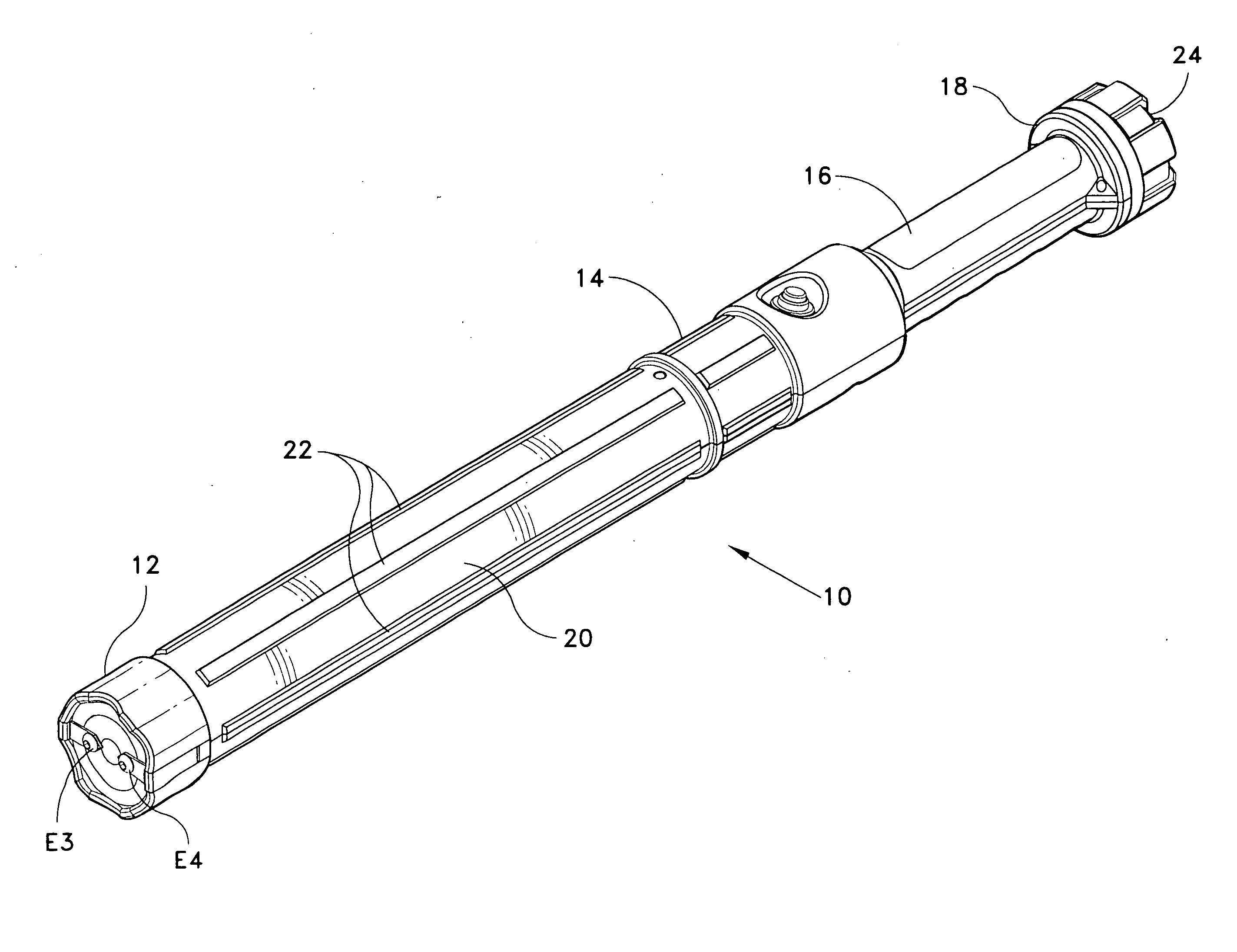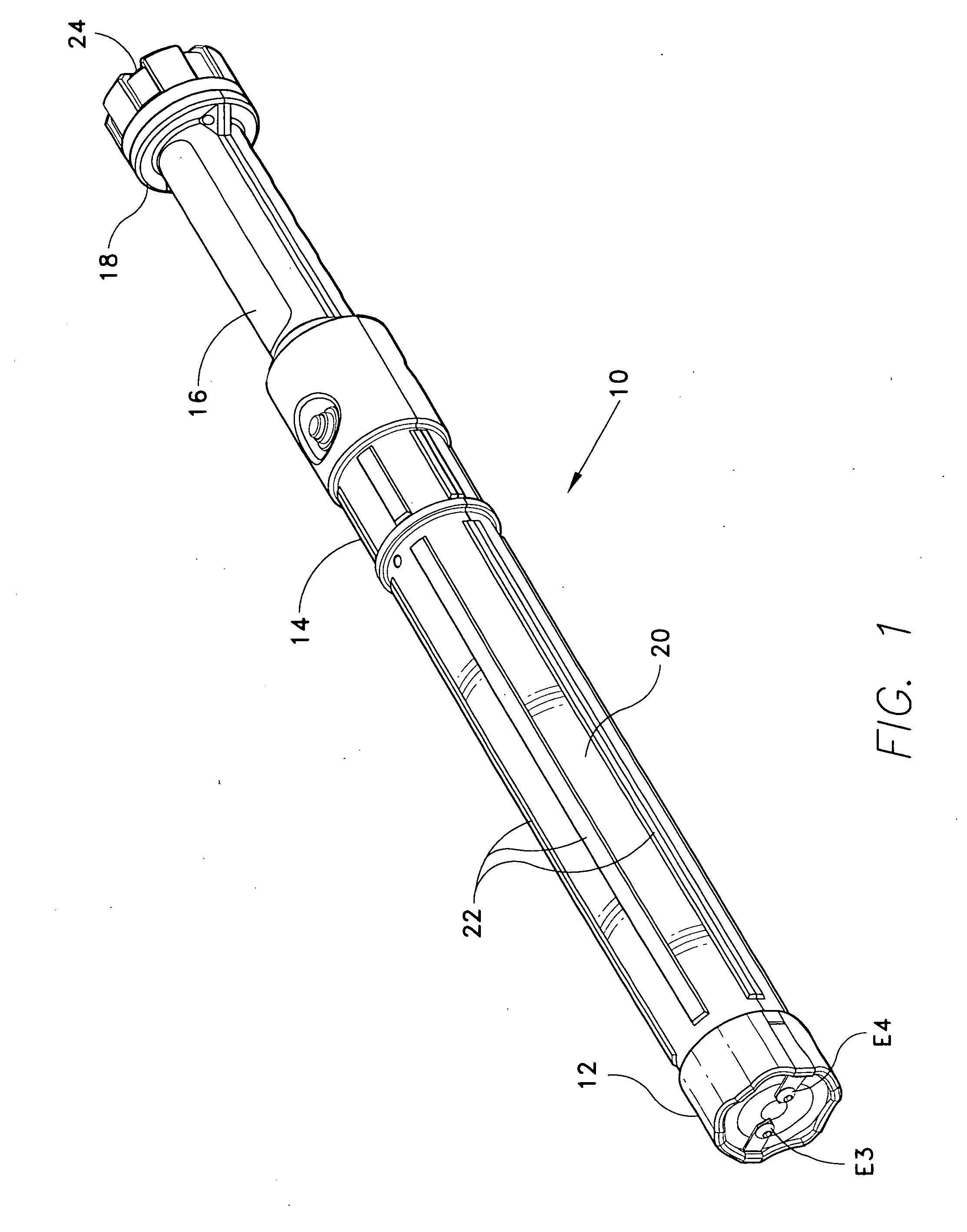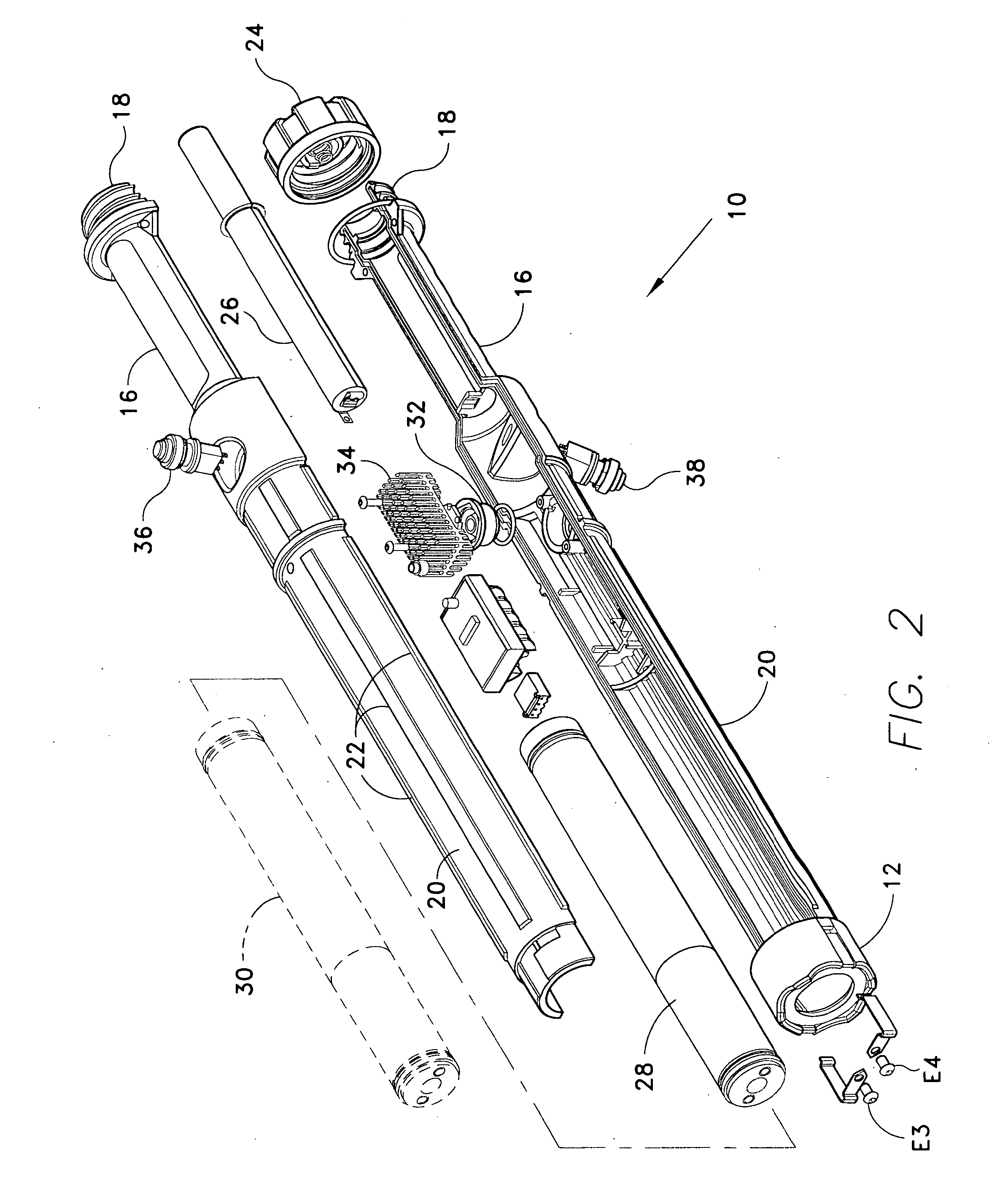Modular personal defense device
a personal protection device and module technology, applied in racket sports, gymnastics, clubs, etc., can solve the problems of affecting the movement of security personnel, little has been done over the years to improve such handheld impact weapons, and the audible and visual impression generated by the electrical arc across the contacts is quite intimidating, so as to achieve disorientation, emotional changes, and/or other effects in persons
- Summary
- Abstract
- Description
- Claims
- Application Information
AI Technical Summary
Benefits of technology
Problems solved by technology
Method used
Image
Examples
Embodiment Construction
[0056] The present invention comprises various embodiments of a personal defense device. My prior U.S. Pat. Nos. 6,643,114, issued Nov. 4, 2003, and 6,791,816, issued Sep. 14, 2004, both of which are hereby incorporated by reference, describe improvements in baton-style personal defense devices. The present application describes further improvements in baton-style personal defense devices in which various defensive output modules providing various defensive or deterrent effects or functions may be installed interchangeably with one another. The various output modules are enclosed within a rigid, hard baton that serves as an impact weapon, i.e., a nightstick like device.
[0057]FIG. 1 of the drawings provides a perspective view of a personal defense device 10 having an electrical stun output end cap 12 installed thereon. The defense device 10 basically comprises a hard, rigid, elongate, hollow baton 14 having a concentric handle portion 16 and handle end 18, with an impact portion 20 ...
PUM
 Login to View More
Login to View More Abstract
Description
Claims
Application Information
 Login to View More
Login to View More - R&D
- Intellectual Property
- Life Sciences
- Materials
- Tech Scout
- Unparalleled Data Quality
- Higher Quality Content
- 60% Fewer Hallucinations
Browse by: Latest US Patents, China's latest patents, Technical Efficacy Thesaurus, Application Domain, Technology Topic, Popular Technical Reports.
© 2025 PatSnap. All rights reserved.Legal|Privacy policy|Modern Slavery Act Transparency Statement|Sitemap|About US| Contact US: help@patsnap.com



